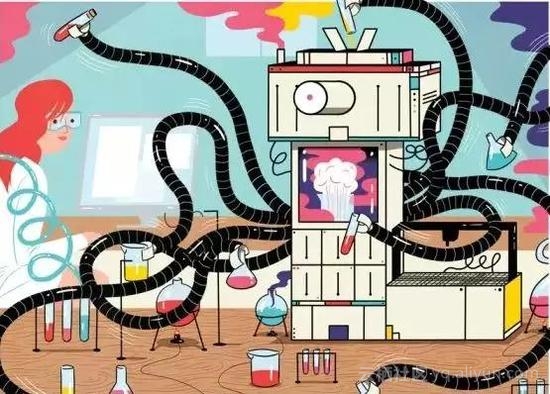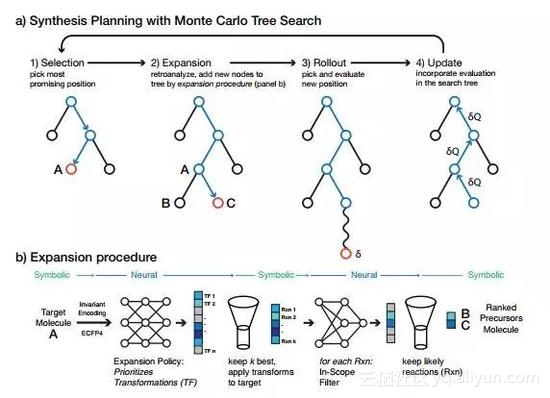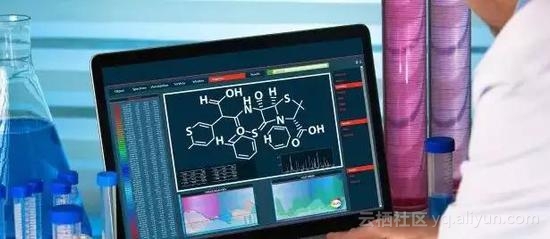Abstract: AI is a science. Now, it is also transforming science, and even the capabilities it exhibits are not only the potential to transform scientific discovery, but also lead the process of scientific discovery and make the field of science enter a new era. outbreak stage.
Accidental mold contamination, accidental mold growth, accidental placement of petri dishes on workbenches, accidental temperature conditions, and accidental vacations, the discovery of penicillin by Alexander Fleming in 1928 is considered by the scientific community as "a series of accidental events. Caused by", which means that if there is no such a series of "accidental" occurrences, I am afraid that hundreds of millions of people will suffer from bacterial infections.
Penicillin is just one of many serendipitous discoveries in the scientific community, where "accidental luck" abounds in every field of scientific research—whether it's looking up at the stars to find new terrestrial planets, or delving into the microscopic world to understand the structure of the human genome, or Repeated experiments to find a new anti-cancer drug - an undeniable fact: until today, quite a lot of human achievements in the field of scientific research are still through "millions of repetitions plus a little chance" obtained luck".
But this is much happier than the ancestors 100 years ago: since the advent of modern computers, computing and mathematics, physics, chemistry, biology and other disciplines have intersected and merged, forming computational mathematics, computational physics, computational chemistry , computational biology and a series of computational sciences, based on the powerful computing power and rich capabilities brought by modern information technology, traditional scientific research can quickly simulate, reproduce, and iterate tens of millions of times in the information space. unprecedented development.
When the protein folding problem was proposed in 1966, people still knew very little about this substance that constitutes life. It usually takes 1 or 2 years to outline the structure and folding structure of a protein, but in the simulation composed of powerful computing power. In the system, a database of more than 80,000 protein structures has been established around the world, and it is also known that diseases such as Alzheimer's, Parkinson's disease, and type II diabetes are significantly related to protein folding.

This is the first time that the bit world has penetrated into the atomic world that composes us. Computing power is like a sharp sword, changing all aspects of society—politics, economy, social relations—but also the natural world, the microscopic world, and even the atomic world. , of course, but also the human body.
Since 2018, artificial intelligence has continuously made breakthroughs in the fields of chemistry, biology, medicine and even astronomy . Fluorescence images and AI assist in the diagnosis of diabetic retinopathy. On the basis of modern computing, AI forms a new ecology of "AI + Science", which greatly promotes and even achieves unprecedented scientific research results, just like 30 years ago, "Computing + Science" "(Computational chemistry, for example) is comparable to what has been achieved with theoretical research methods (theoretical chemistry) and experimental scientific methods (experimental chemistry).
AI is a science, and now, it is also transforming science, and even the capabilities it exhibits are no longer just the potential to transform scientific discovery, but lead the process of scientific discovery and make the field of science enter a new stage of explosion .
For contemporary scientists, after going through the three development stages of experiment, theory and calculation in basic scientific research, they are fortunate to encounter such a brand-new method as AI: AI in the field of science can be used in the field of human insight and analysis. In addition, new horizons are formed, new research paths are formed, and new unknown areas are discovered, which are usually achieved in the past few decades.
It is foreseeable that, like modern computing, AI will be further integrated into the empowered field and transformed into its own technology and capabilities. It will not only be a scientific research method and means, but will be combined with scientific research to form a new technology. "AI Chemistry", "AI Physics" and other brand-new disciplines.
AI is not just transforming science, it is entering the atomic world, becoming part of scientific research and leading the process of scientific discovery.
Further reading:
The chemical industry "AlphaGo" came out: speeding up the synthesis of compounds needed by humans
Marwin HS Segler and his team used a deep learning neural network to learn all known about 12.4 million single-step organic chemical reactions, allowing it to predict the chemical reactions that can be used in any single step. AI tools repeatedly apply these neural networks to plan a multi-step synthesis, deconstructing the desired molecule, until finally a usable reagent is available.

Their recent paper in the journal "Nature" demonstrates that the use of artificial intelligence technology can carry out reverse synthesis reactions at an unprecedented rate. After this process is shortened, scientific research institutions and pharmaceutical companies will discover new drugs or other new medical technologies in the future. Speed will hopefully reach a whole new level.

It can be said that the integration of AI into the chemical (reaction) process this time is a milestone in the field of drug synthesis and even in the field of chemical research. It means that AI will take root in basic research fields such as chemistry, physics, and biology, and redefine (not only It is to optimize the means and methods of scientific research in these fields, forming a new form of "AI + science" , which greatly promotes and even achieves unprecedented scientific research results. Just like thirty years ago, "computing + science" (such as computational chemistry) relative theory Research methods (theoretical chemistry) and experimental scientific methods (experimental chemistry) have achieved that.
Not only that, the Segler team's pioneering work reflects the "chemical ability" of knowledge discovery, and shows the unique charm of how AI "fully integrates into the empowered field and transforms it into its own technology". For example, in the industrial world, AI Has become PT, namely Production Technology (production technology).